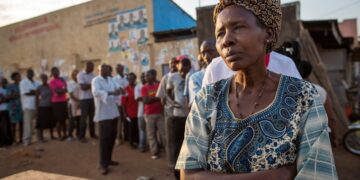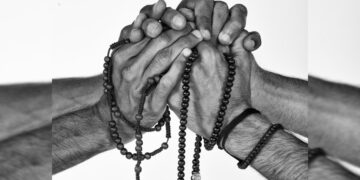OPINION
Yesterday, on my way home, I saw something that shook me to the core. A young woman, barely more than a girl, was standing in the middle of the road holding a baby no more than two months old and sobbing uncontrollably. She was clearly trying to get hit by a car. She was trying to end her life.
As we rushed to help her, she told us her story. She had become pregnant while still very young. When she informed the man responsible, he abandoned her. With nowhere to turn, she ran away from her mother’s home. For months, she tried to reach the man who got her pregnant but he ignored her completely. Recently, he called her, asking her to come to Kampala to collect some money. Desperate and hopeful, she made the journey. But once she arrived, he switched off his phone and disappeared.
She was left stranded. Heartbroken. Hopeless. Alone with a newborn baby and no one to help her. This is not just an isolated incident. It is a reflection of a deeper crisis in our society a crisis where emotional abandonment, neglect, and economic violence against women go unspoken, unnoticed, and unpunished.
Where is the accountability?
Honestly, what is wrong with some men? How can you get someone pregnant and then vanish as if your responsibility ended at the act of sex? This kind of behavior ruins lives. It doesn’t just hurt the woman it affects the child, the families, and ultimately the community.
We must start recognizing that abandonment is a form of gender-based violence. When a man leaves a woman to face pregnancy, childbirth, and motherhood alone with no emotional, financial, or moral support it is not just irresponsibility. It is abuse. It is violence. And it must be called out as such.
Too often, we talk about gender-based violence only in terms of physical assault or sexual abuse. But GBV includes much more: emotional torment, psychological manipulation, social isolation, and economic exploitation. These are the kinds of abuses that don’t leave bruises on the body, but they leave deep, permanent wounds on the soul.
The young mother I met yesterday could have died and we would have blamed it on “depression” or “poverty.” But the truth is, she was pushed to the edge by a system and a culture that failed to protect her, value her, or hold the man accountable.
We must do better
Uganda must wake up to the silent suffering of abandoned mothers. These young women are often left to carry the full burden of parenting alone emotionally, financially, and socially. Their pain is not always visible, but it is deep, and it is real. We cannot continue to look away.
As a society, we need to start holding men accountable for the children they father. Getting someone pregnant and then disappearing is not just selfish it’s violent. It is a form of gender-based violence that leaves young mothers vulnerable to poverty, mental health crises, and sometimes even suicide.

Our legal system must do more. There should be strict consequences for men who abandon their responsibilities. We need laws that not only recognize economic and emotional abuse as GBV, but also enforce penalties when it happens. Too many women are left to suffer in silence while the men walk away freely.
Education is key. We must begin teaching our boys from an early age about respect, responsibility, and consent. We must challenge the toxic beliefs that make men think it’s acceptable to walk away from their children and from the women they harm. Until we address these mindsets, the cycle of abandonment will continue.
At the same time, we must strengthen support systems for young mothers. This includes access to counseling, shelters, legal aid, and vocational training. These women need more than pity — they need resources, respect, and a path forward.
This is not just a “women’s issue.” It affects all of us. When a mother is broken, a child suffers. When families are unstable, communities suffer. If we want to build a stronger, more compassionate Uganda, we must begin by protecting the most vulnerable among us.
That young mother I met could have died yesterday. She almost did. But her story should be a turning point a moment that reminds us all of what is at stake.
Conclusion
Gender-based violence isn’t always loud. Sometimes, it looks like silence. Like abandonment. Like a young mother standing in the middle of the road, ready to end her life because she feels unseen, unloved, and unsupported. These quiet forms of violence are just as deadly and far more common than we admit.
We must expand our understanding of GBV to include emotional, economic, and psychological abuse. We must stop blaming women for the pain they carry and start holding men accountable for the pain they cause. And we must stop treating these stories as isolated incidents because they are not.
By Leticia Ahirirwe








































